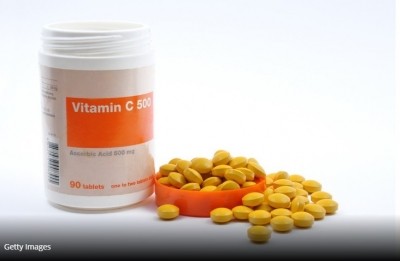UK Prime minister urged, ‘Look to Andalusia’s vitamin D use in tackling COVID-19’

In last week’s Prime Minister Questions (PMQs), Conservative backbencher David Davis MP pointed to the Spanish region’s distribution of calcifediol, a vitamin D supplement, to care home residents in November.
Latest figures from Andalusia highlight a drop in deaths per million from COVID-19 from 187 in November to just 11 at the start of January - an 82% drop.
“After giving out activated vitamin D to care home residents and some GP patients that death rate almost halved whilst ours was doubled,” Davis said.
“Can he ask his advisors to look urgently again at the very latest Spanish research around this cheap, safe and apparently effective treatment.”
In response, the Prime Minister said the government would continue to monitor all the evidence about the efficacy of vitamin D and the mentioned treatments
“I am well aware of it; indeed, we have discussed it before personally,” he added. “I will keep him updated on the review that is taking place.”
The Andalusians appear to have had an extremely good result from providing activated Vitamin D, calcifediol, to care home residents and some GP patients. Today I asked @BorisJohnson to look into the latest evidence from Spain on this cheap, safe and effective treatment. pic.twitter.com/oiSkmJEvIg
— David Davis (@DavidDavisMP) February 3, 2021
Evidence under review
The brief exchange follows news that the UK’s Health Secretary Matt Hancock has asked Public Health England (PHE) and the National Institute for Health and Care Excellence (Nice) to keep emerging evidence about the link between vitamin D and COVID-19 under review as the government ponders its next move.
According to the Guardian, the authorities were encouraging people to supplement with vitamin D supplements rather than advise on this course of action.
Nice has repeated the assertion that there is insufficient causal evidence to back high-dose vitamin D to treat or prevent the respiratory illness.
However, PHE admitted last month that vitamin D may play a role in reducing the risk of respiratory illnesses.
Hancock’s request represents an ongoing evaluation of the evidence that started back in October last year.
Here, the UK government reassessed its stance on the use of vitamin D in addressing coronavirus after the country’s health secretary incorrectly said a study had concluded it to be ineffective.
In a House of Commons session, Hancock stated that the government-led research found vitamin D did not ‘appear to have any impact,’ on alleviating the virus. Ministers later admitted that no clinical trials on the vitamin have taken place.
Later in the year, the UK Government began offering free vitamin D supplements to the most vulnerable in a move that supported bone and muscle health affected during lockdown but stopped short of directly addressing COVID-19.
However, the doses recommended were below the guidelines Nice stated in order to address the vitamin’s deficiency, said to be up to 40% of the UK population.
Lancet wades in
In an editorial last month, the Lancet highlighted findings from a randomised clinical trial in more than 20,000 Australian adults that suggested vitamin D taken monthly did not reduce the risk or severity of acute respiratory tract infections.
In addition, the authors of a systematic review and meta-analysis concluded that vitamin D supplementation was safe and identified a small protective effect from acute respiratory tract infections.
This effect was based on daily doses of 400–1000 IU vitamin D for up to 12 months. The research team did acknowledge significant heterogeneity across trials

















